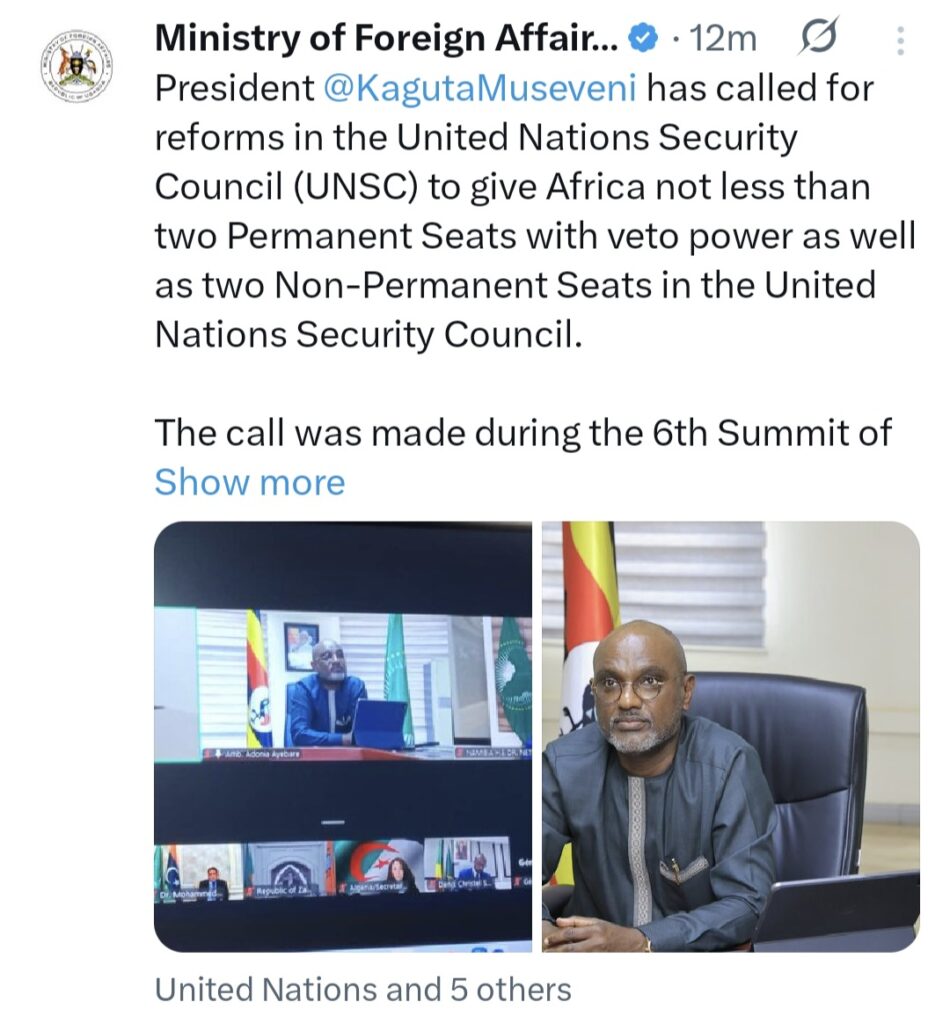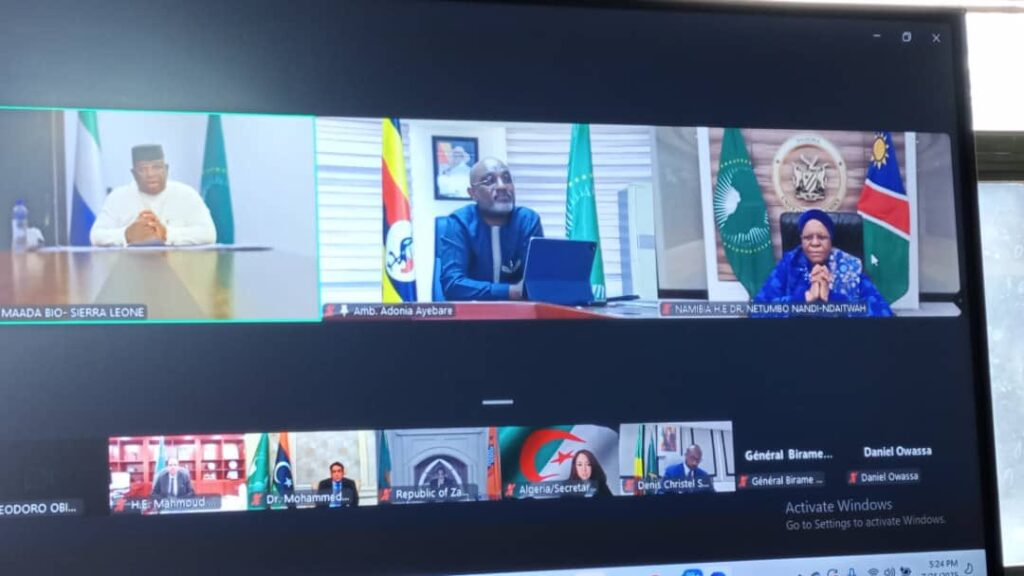Mekelle፡Telaviv, Nairobi, Pretoria, London, (Tigray Herald).
Africa Demands a Voice: Museveni Calls for Permanent African Seats at UN Security Council
By our East Africa Correspondent
Uganda’s President Yoweri Kaguta Museveni has renewed Africa’s long-standing call for structural reforms at the United Nations Security Council (UNSC), demanding that the continent be granted at least two permanent seats with veto power, in addition to two non-permanent seats.

The remarks were delivered during the 6th Summit of the Committee of Ten (C-10) African Union Heads of State and Government on the Reform of the UNSC, held virtually on Friday, 25 July 2025. The C-10 an African Union-mandated committee formed to advocate for Africa’s position in global governance includes Algeria, Congo (Brazzaville), Equatorial Guinea, Kenya, Libya, Namibia, Sierra Leone, Senegal, Uganda, and Zambia.
Museveni’s call reignites momentum behind the Ezulwini Consensus and Sirte Declaration, landmark African Union policy frameworks that have long outlined the continent’s collective position: that the historical injustices of Africa’s exclusion from the UNSC’s permanent membership must be rectified.
“Africa cannot continue to be a spectator on issues that directly affect her people,” Museveni said. “It is unacceptable that a continent of 1.4 billion people has no voice in global security decisions while former colonial powers retain exclusive control.”
The UNSC, composed of five permanent members with veto power China, France, Russia, the United Kingdom, and the United States has faced increasing criticism for its lack of inclusivity, particularly from the Global South. While Africa holds three of the Council’s ten rotating non-permanent seats, it has no permanent representation despite being the focus of the majority of the Council’s peacekeeping mandates and conflict deliberations.

Museveni argued that this imbalance not only undermines Africa’s sovereignty but also perpetuates a neo-colonial world order in which decisions about Africa are made without African participation.
The virtual summit was convened amid rising dissatisfaction among developing countries about multilateral governance, particularly in light of recent geopolitical crises and the Council’s inaction in conflicts in Africa, such as in Sudan, the Democratic Republic of Congo, and the Horn of Africa.
African leaders at the C-10 summit reiterated that their proposal is not merely symbolic, but critical for a fair and effective United Nations system. They insist that two permanent African seats complete with veto power must be part of any legitimate reform package, alongside two additional non-permanent seats for the continent.
“The reform of the Security Council is not a favour to Africa; it is a long overdue correction of a historic injustice,” said Sierra Leone’s President Julius Maada Bio, the current Chair of the C-10. “The legitimacy and effectiveness of the UN system depend on its ability to reflect today’s realities not the geopolitics of 1945.”
Despite broad support from the African Union, the Group of 77, and other developing blocs, progress on UNSC reform has stalled for decades due to opposition from permanent members wary of diluting their power.
Museveni called on African states to maintain a unified stance and intensify diplomatic lobbying across global forums. He also urged the continent’s youth and intellectuals to speak out in support of Africa’s rightful place in global governance.
As global power dynamics shift and the legitimacy of international institutions continues to be questioned, the African Union is signaling that it will not remain silent. The continent’s demand for equal representation at the highest table of global decision-making has entered a new, more assertive phase.
Whether the United Nations listens or remains anchored in a post-WWII order is a test of its relevance in the 21st century.
Source: Ugandan Ministry of Foreign Affairs




